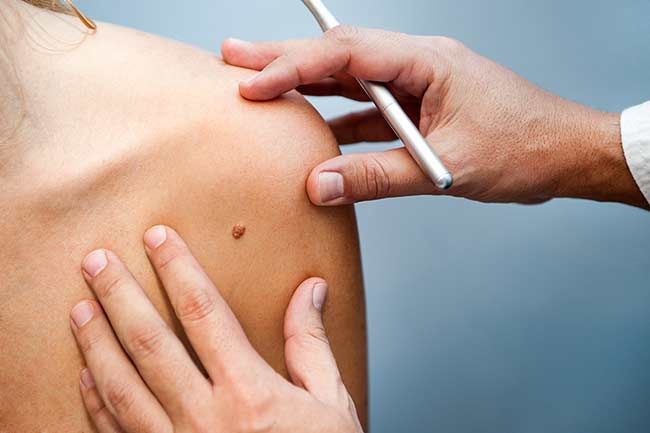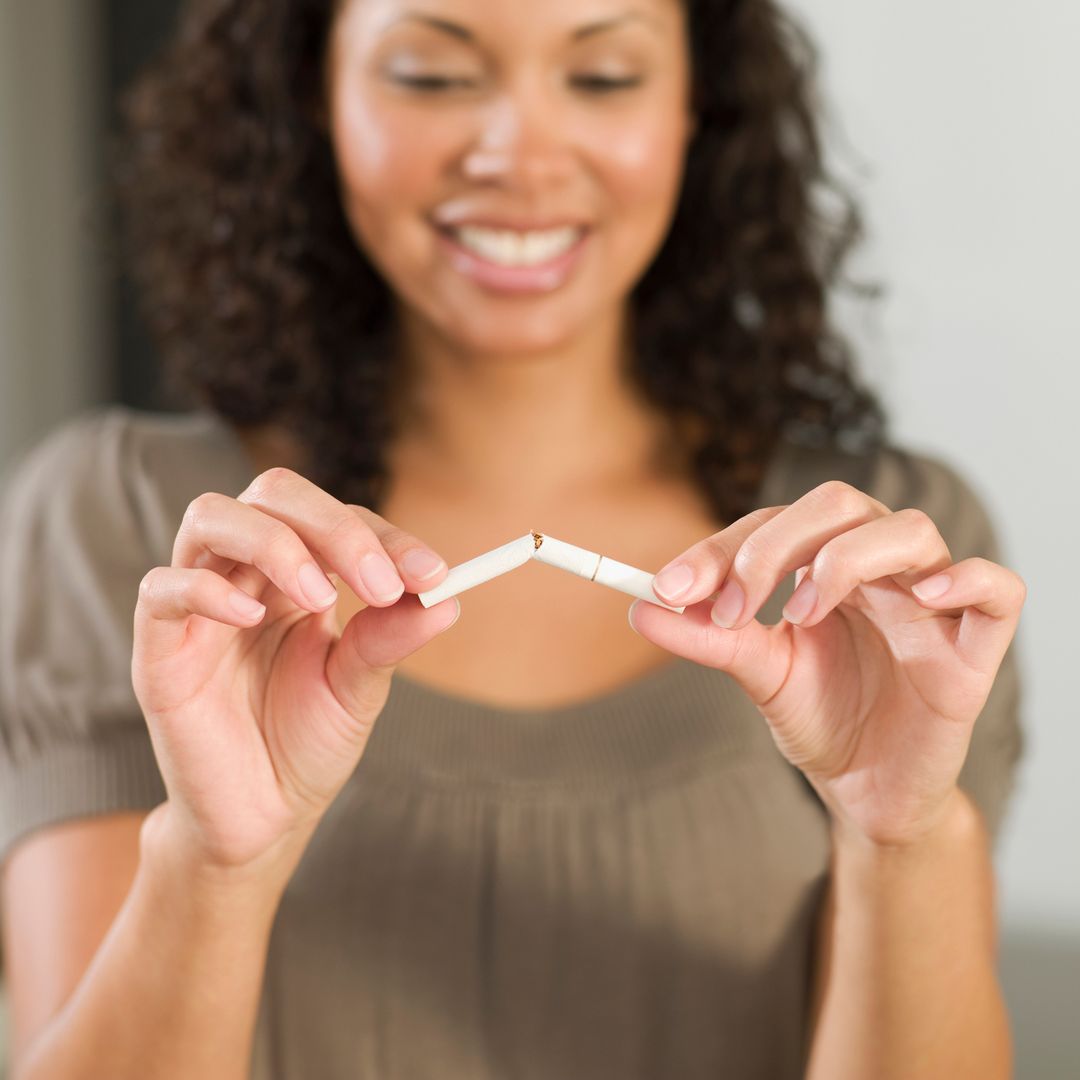We all know that changes to a mole can be a sign of skin cancer, however, many Brits are missing one major symptom of melanoma, according to Dr Ross Perry. We visited the dermatologist at his Harley Street clinic to learn more about the different types of skin cancer – malignant melanoma, squamous cell carcinoma (SCC) and basal cell carcinoma (BCC) - and how they can be detected.
Keen to dispel some myths about skin cancer, Dr Ross explained: "The common myth is that people think they have to have been sunburnt or had lots of sun in the past to get skin cancer but that's just not true. Unfortunately for melanoma there is a risk with sun exposure but also people can just develop them anyway."
An irregular, dark, flat mole should be checked for melanoma
The dermatologist also explained some of the classic symptoms of melanoma that we need to look out for. "They are classically a dark, black, flat mole. In men the commonest site is on the back, and in women the commonest site is on the legs," he said. "But these are things that people need to spot as opposed to feel any symptoms from. So it's important that people check their bodies for these new or irregular looking moles."
MORE: How to spot signs of skin cancer
To identify possible signs of skin cancer it is important to check your moles regularly, paying particularly close attention to any new or irregular moles for signs of change over time. Meanwhile, non-melanoma skin cancer will typically occur in your 50s or 60s, and is often a "patch of skin that doesn't heal, it comes and goes and can be a little bit painful," making it generally easier to identify.
Dr Ross Perry dispelled myths about skin cancer
Dr Ross also urged people to stay safe in the sun during the heatwave. "You can get a tan, the main thing is just to not get burnt," he said. "Getting burnt increases your risk of skin cancer, and I would advise that no matter what skin tone you are and however much you think you're not going to burn, you should put sun cream on."
STORY: How to stay safe in the sun this summer
The main way to prevent skin cancer is by avoiding overexposure to UV light and keeping your skin covered or protected in the sun. Always use a high SPF sun cream and seek shade where possible when you're outside.








